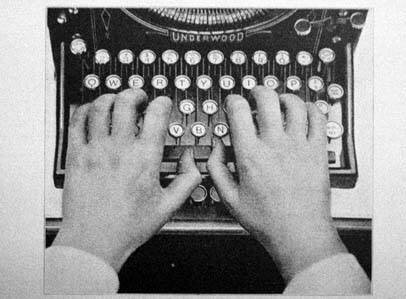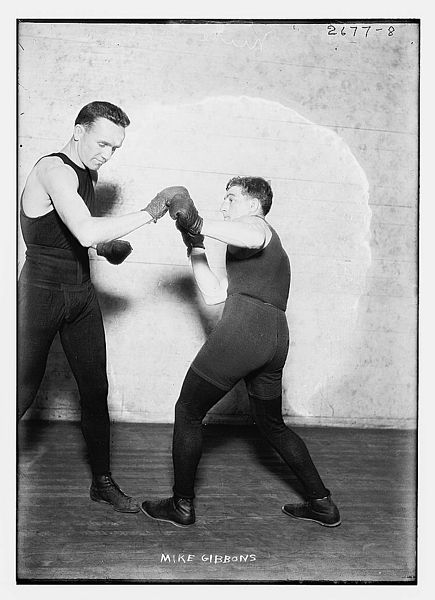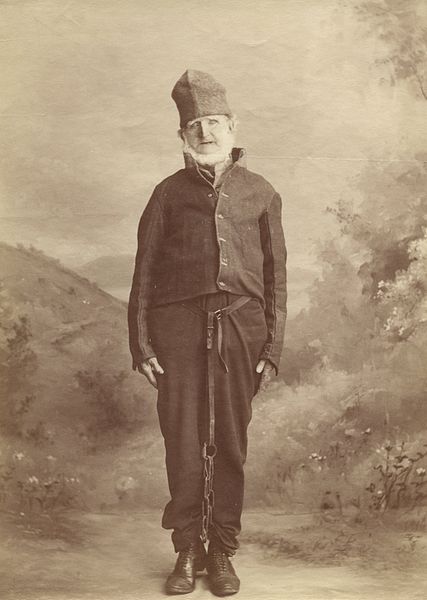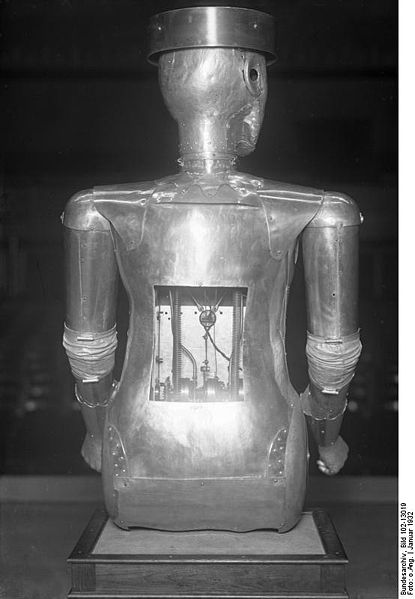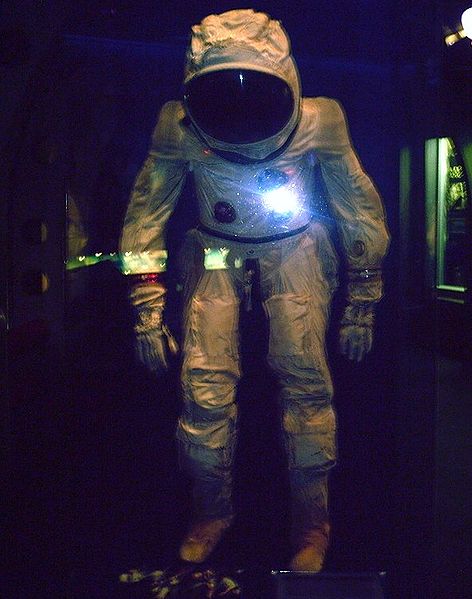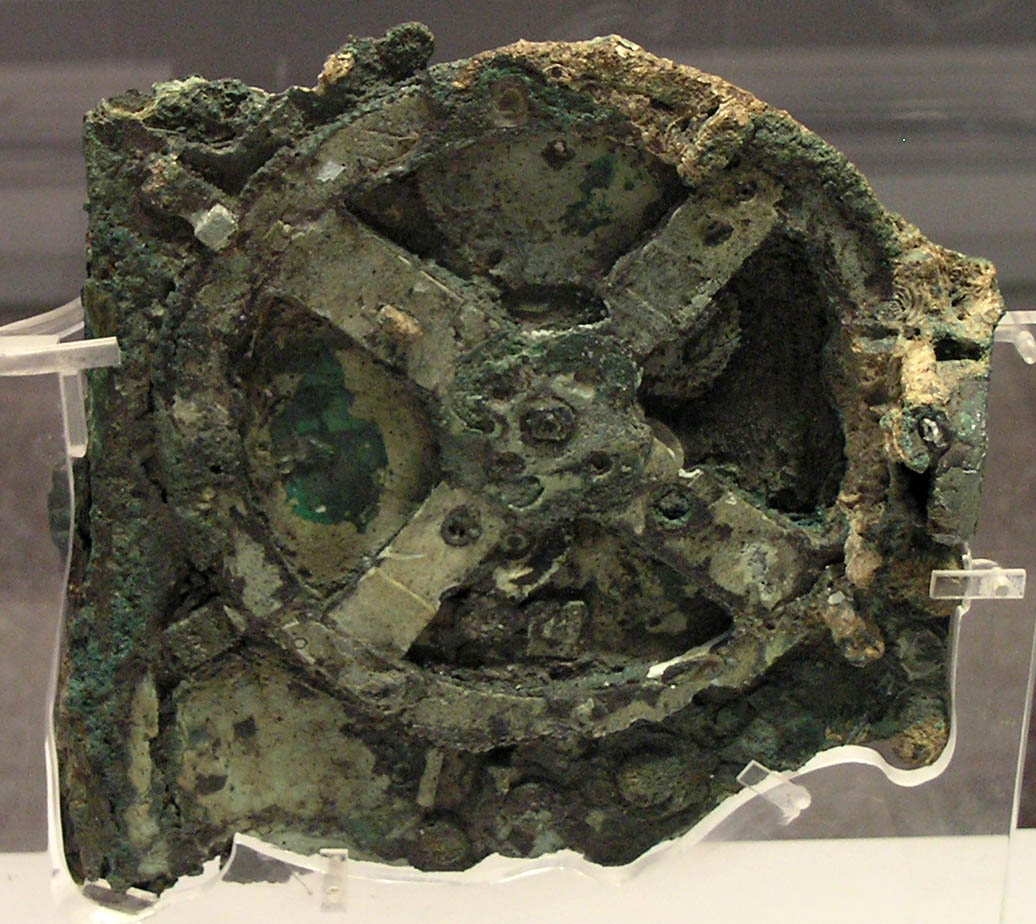Some search-engine keyphrases bringing traffic to Afflictor this week:
You are currently browsing the yearly archive for 2011.
- Old Print Articles: Inside a Brooklyn boxing establishment (1889) + Orangutan learns a simple trick (1889) + Guy kicked in head by horse escapes from hospital (1899).
- Classic Photographs; John Glenn accepts invitation from the future (1962).
- Featured Videos: Mesmerizing DeLorean doc (1981) + Lee Iacocca rallies America (1984) + Richard Pryor laughs at Milton Berle’s illegitimate child (1974) + David Frost interviews Geraldine Jones (1970) + Bill Gates predicts the future of mobile commerce (1995) + Johnny Cash on 60 Minutes (1982) + Total eclipse of the sun (1979) + K-Tel bottle-cutter kit commercial + Liz Taylor and Richard Burton enjoy bickering (1970) + Robot rides bicycle in Japan + Qaddafi profiled on 60 Minutes (2001).
- Recently Posted on NYC’s Craigslist: Gabriel Byrne has the laziest stalker in the world + Occupy Wall Street’s message grows even more diffuse + I am in denial over my weight gain + I thought I was getting laid, and then my raft was gone + My painted toenails are probably the least weird thing about me + Social Security checks funding orgies.
- Norman Mailer profiles fellow pugilist Mike Tyson in 1988.
- In 1968, Stanley Kubrick wondered what we might find on the moon.
- Recalling how Richard Dawkins coined the term “meme” in 1976.
- The agonizing evolution of the word “consumer.”
- Frank Rich analyzes class warfare in America.
- Milton Friedman defends sweatshops in 1972.
- Some Silicon Valley bigwigs send their kids to Luddite schools.
- Rick Perry is at least as bad as you thought, perhaps worse.
- How much is automation hurting the job market?
- Was the Antikythera Mechanism humankind’s first computer?
- Michael Weinreb explains why sports series are best-of-seven.
- Buckminster Fuller opines on social revolution in 1972.
- Jann Wenner recalls former employee Hunter S. Thompson.
- Swami Bhaktipada had an unusual life, to say the least.
- Preparing for the next wave of bioterrorism.
- How journalist Ron Rosebaum inspired Steve Jobs’ career.
- John McCarthy coined the term “Artificial Intelligence” in 1955.
- Internet irreverence is making waves in China.
- This week’s Afflictor keyphrase searches.
Tags: Harry Reasoner, Johnny Cash
This classic 1962 NASA photograph shows American astronaut John Glenn suited up for Mercury 6, the first successful U.S. attempt to put a manned spaceship into orbit. Glenn, who was the pilot of that mission, explained his participation in the burgeoning space program in a March 3, 1961 Life cover story: “‘A lot of people ask,’ he reflected recently, ‘why a man is willing to risk hat, tail and gas mask on something like this. Well, we’ve got to do it. We’re going into an age of exploration that will be bigger than anything the world has ever seen. I guess I’m putting my family up against some risks. I could do other jobs which might increase my life expectancy. But this could help my kids, too. I want them to be better off than I was as a young man. With risks you gain.
‘I’ve got a theory about this,’ Glenn continued, speaking with great care. ‘People are afraid of the future, of the unknown. If a man faces up to it and takes the dare of the future, he can have some control over his destiny. That’s an exciting idea to me, better than waiting with everybody else to see what’s going to happen.”
••••••••••
“Godspeed, John Glenn”:
Tags: John Glenn

"...too incompetent even to hold his own in televised debates with a half-bright pizza salesman like Herman Cain and a goggle-eyed megachurch Joan of Arc like Michele Bachmann." (Image by Gage Skidmore.)
I don’t exactly trust Matt Taibbi’s work, and not just because of the lack of impartiality. His seems to possess a massive ego, needs to take everything to extremes, and fails to acknowledge his mistakes even when he’s utterly wrong. But he is a really talented writer, dazzling sometimes, and useful for information provided you don’t take him as gospel. Rick Perry, the floundering former frontrunner of the GOP, is his target in the latest Rolling Stone. An excerpt:
“Perry’s campaign is still struggling to recover from the kind of spectacular, submarine-at-crush-depth collapse seldom seen before in the history of presidential politics. The governor went from presumptive front-runner to stammering talk-show punch line seemingly in the speed of a single tweet, rightly blasted for being too incompetent even to hold his own in televised debates with a half-bright pizza salesman like Herman Cain and a goggle-eyed megachurch Joan of Arc like Michele Bachmann. But such superficial criticisms of his weirdly erratic campaign demeanor don’t even begin to get at the root of why we should all be terrified of Perry and what he represents. After all, you have to go pretty far to stand out as a whore and a sellout when you come from a state that has produced such luminaries in the history of political corruption as LBJ, Karl Rove and George W. Bush. But Rick Perry has managed to set a scary new low in the annals of opportunism, turning Texas into a swamp of political incest and backroom dealing on a scale not often seen this side of the Congo or Sierra Leone.
In an era when there’s exponentially more money in politics than we’ve ever seen before, Perry is the candidate who is exponentially more willing than we’ve ever seen before to whore himself out for that money. On the human level he is a nonpersonality, an almost perfect cipher – a man whose only discernible passion is his extreme willingness to be whatever someone will pay him to be, or vote for him to be. Even scarier, the religious community around which he has chosen to pull his human chameleon act features some of the most extreme end-is-nigh nutcases in America, the last people you want influencing the man with the nuclear football. Perry is a human price tag – Being There meets Left Behind. And sometimes there’s nothing more dangerous than nothing at all.”
Tags: Matt Taibbi, Rick Perry
From Brook Larmer’s New York Times Magazine article about Chinese animator Pi San and the dangerous art of Internet political humor in modern China:
“No government in the world pours more resources into patrolling the Web than China’s, tracking down unwanted content and supposed miscreants among the online population of 500 million with an army of more than 50,000 censors and vast networks of advanced filtering software. Yet despite these restrictions — or precisely because of them — the Internet is flourishing as the wittiest space in China. ‘Censorship warps us in many ways, but it is also the mother of creativity,’ says Hu Yong, an Internet expert and associate professor at Peking University. ‘It forces people to invent indirect ways to get their meaning across, and humor works as a natural form of encryption.’
To slip past censors, Chinese bloggers have become masters of comic subterfuge, cloaking their messages in protective layers of irony and satire. This is not a new concept, but it has erupted so powerfully that it now defines the ethos of the Internet in China. Coded language has become part of mainstream culture, with the most contagious memes tapping into widely shared feelings about issues that cannot be openly discussed, from corruption and economic inequality to censorship itself. ‘Beyond its comic value, this humor shows where netizens are pushing against the boundaries of the state,’ says Xiao Qiang, an adjunct professor at the University of California, Berkeley, whose Web site, China Digital Times, maintains an entertaining lexicon of coded Internet terms. ‘Nothing else gives us a clearer view of the pressure points in Chinese society.'”
••••••••••
A Pi San animation:
Tags: Brook Larmer, Hu Yong, Pi San, Xiao Qiang
Dating Women 50 + (Greenwich Village)
Two years ago I set up a date site after a friend met someone nice and local on his very first try on ….Craigslist ! They got together for months on the weekends and had alot of fun . I eventually made contact with a woman in Maryland and after a few e-mails and phone calls she drove up to spend the nite. 45 minutes after first meeting we were in a Holiday Inn in Morris County getting it on. She later drove back up & brought me back to her home for a 4 day visit that included a threesome in Delaware ! Wow. The next woman was local and again we had dinner and had sex the first date and every weekend after for the next three months or so. They were both willing & eager to enjoy themselves and we parted on good terms. Nice figures & attitudes as well. I’m 56 6’1″ 190 lbs.
A post from TechnoAnthropology about employment in a time of increasing technological efficiency:
“The old Luddite fears seem to have been somewhat founded. Factories are making cars and needing less workers to do it. Brad McClenny (who sits in the office next to mine), armed with the internet, MS Word, machine translation, and digital phones, runs the international student program for our college in a way that it took a team of three people to do ten years ago (Kathy, Amanda, and that other girl).
As a starry-eyed libertarian, I try to believe that for every job that efficiency kills, we’ll get other ones, as all of the unemployed people begin to invent killer iPhone apps and musical masterpieces that we all can’t live without, and sell them to the people holding the remaining old-school jobs. It might be true. It would be cool.
Another thing that might be cool (in a starry-eyed not-libertarian way) would be transitioning into something like the Star Trek economy, where there is sufficient efficiency to guarantee everyone exactly the clothes and meals they want replicated, and we spend our time following our callings, quite aside from any need for money. This would take futuristic levels of automation and efficiency. It would also take redistribution. Some historical re-distributive plans in other countries got ugly. Americans are taught about these in school, and don’t like them. I don’t think that America will go for this kind of re-distribution anytime soon. Well, not if we know we’re going for it.”
The future of mobile commerce, as predicted by Bill Gates in a CD that came with his 1995 book, The Road Ahead.
Microsoft’s new video predicting the future of tech:
Tags: Bill Gates
That happily married (and remarried) couple, Richard Burton and Elizabeth Taylor, profiled on 60 Minutes, 1970.
Their greatest joint film effort, Who’s Afraid of Virginia Woolf?, as performed by fast-talking commercial pitchmen (and women), SCTV, 1980:
One repugnant thing I’ve noticed about cable TV news during this Wall Street-fueled economalypse that we’re struggling through is that talking heads–and not just on business channels–have taken to using the word “consumer” in place of “citizen,” not only when they’re talking about consumption but in almost every instance. It’s gross, as if we’re just so many credit card swipes and little else. Erin Burnett, the former Goldman Sachs analyst who recently brought her sense of privilege to CNN, is particularly egregious with this usage. I love commerce and business innovations and product design, but it’s horrifying that we’ve been gradually and quietly reduced to the sum of our purchases instead of the sum of all we are.
In the wake of 9/11, the recently departed Libyan despot tried to recast himself as anti-terrorist during a 60 Minutes interview with PBS strongman Charlie Rose.
Tags: Charlie Rose, Muammar al-Qaddafi
Male Toe Polish
I am a male who enjoys wearing dark color toe polish. Why do people giggle or look at me funny? Celebrities do it and it’s cool. It’s just paint. Why are tattoos acceptable but not polish. I just don’t get it!!! Anyone have an opinion on this??
The year 2001: A Space Odyssey was released and a year before Apollo 11 landed on the moon, Stanley Kubrick was asked during a Playboy Interview what he thought we would find on the surface of our natural satellite. An excerpt:
“Playboy: What do you think we’ll find on the moon?
Kubrick: I think the most exciting prospect about the Moon is that if alien races have ever visited Earth in the remote past and left artifacts for man to discover in the future, they probably chose the airless lunar vacuum, where no deterioration would take place and an object could exist for millennia. It would be inevitable that as man evolved technologically, he would reach his nearest satellite and the aliens would then expect him to find their calling card–perhaps a message of greeting, a cache of knowledge or simply a cosmic burglar alarm signaling that another race had mastered space flight. This, of course, was the central situation of 2001.”
••••••••••
“Universe,” Roman Kroitor and Colin Low’s 1960 short which informed 2001:
From “Fragmentary Knowledge,” John Seabrook’s 2008 New Yorker article about the Antikythera Mechanism, perhaps humankind’s first computer:
“Looking back over the first 50 years of research on the Mechanism, one is struck by the reluctance of modern investigators to credit the ancients with technological skill. The Greeks are thought to have possessed crude wooden gears, which were used to lift heavy building materials, haul up water, and hoist anchors, but historians do not generally credit them with possessing scientifically precise gears—gears cut from metal and arranged into complex ‘gear trains’ capable of carrying motion from one driveshaft to another. Paul Keyser, a software developer at IBM and the author of Greek Science of the Hellenistic Era, told me recently, ‘Those scholars who study the history of science tend to focus on science beginning with Copernicus and Galileo and Harvey, and often go so far as to assert that no such thing existed before.’ It’s almost as if we wished to reserve advanced technological accomplishment exclusively for ourselves. Our civilization, while too late to make the fundamental discoveries that the Greeks made in the sciences—Euclidean geometry, trigonometry, and the law of the lever, to name a few—has excelled at using those discoveries to make machines. These are the product and proof of our unique genius, and we’re reluctant to share our glory with previous civilizations.
In fact, there is evidence that earlier civilizations were much more technically adept than we imagine they were. As Peter James and Nick Thorpe point out in Ancient Inventions, published in 1994, some ancient civilizations were aware of natural electric phenomena and the invisible powers of magnetism (though neither concept was understood). The Greeks had a tradition of great inventors, beginning with Archimedes of Syracuse (ca. 287–212 BC), who, in addition to his famous planetarium, is believed to have invented a terrible clawed device made up of large hooks, submerged in the sea, and attached by a cable to a terrestrial hoist; the device was capable of lifting the bow of a fully loaded warship into the air and smashing it down on the water—the Greeks reportedly used the weapon during the Roman siege of Syracuse around 212 BC. Philon of Byzantium (who lived around 200 BC) made a spring-driven catapult. Heron of Alexandria (who lived around the first century AD) was the most ingenious inventor of all. He described the basic principles of steam power and is said to have invented a steam-powered device in which escaping steam caused a sphere with two nozzles to rotate. He also made a mechanical slot machine, a water-powered organ, and machinery for temples and theaters, including automatic swinging doors. He is perhaps best remembered for his automatons—simulations of animals and men, cleverly engineered to sing, blow trumpets, and dance, among other lifelike actions.” (Thanks Electric Typewriter.)
••••••••••
Some of Heron’s automata:
Tags: John Seabrook, Nick Thorpe, Paul Keyser, Peter James
A passage about the threats that attend our amazing scientific progress, from Wil S. Hylton’s New York Times Magazine article, “How Ready Are We For Bioterroism?“:
“The specter of a biological attack is difficult for almost anyone to imagine. It makes of the most mundane object, death: a doorknob, a handshake, a breath can become poison. Like a nuclear bomb, the biological weapon threatens such a spectacle of horror — skin boiling with smallpox pustules, eyes blackened with anthrax lesions, the rotting bodies of bubonic plagues — that it can seem the province of fantasy or nightmare or, worse, political manipulation. Yet biological weapons are as old as war itself. The ancient Hittites marched victims of plague into the cities of their enemies; Herodotus described archers’ firing arrows tipped with manure. By the 20th century, nearly every major nation developed, produced and in some cases used a panoply of biological weapons, including anthrax, plague, typhoid and glanders.
A decade after the 9/11 attacks, it is easy to forget the anthrax letters that sprang up just a few weeks later and to dismiss the fear that swept the country as a relic of a fragile moment that already belongs to history. But in the wake of those events, many national-security experts began to reconsider the risk of a biological attack — and reached some unsettling conclusions. Since the collapse of the Soviet Union, most scientists had assumed that the difficulty of building a bioweapon was far beyond the ability of a terror cell, but looking again in the early 21st century, many experts came to believe that advances in laboratory technology brought the science within reach. ‘What took me three weeks in a sophisticated laboratory in a top-tier medical school 20 years ago, with millions of dollars in equipment, can essentially be done by a relatively unsophisticated technician,’ Brett Giroir, a former director at the Defense Advanced Research Projects Agency (Darpa), told me recently. ‘A person at a graduate-school level has all the tools and technologies to implement a sophisticated program to create a bioweapon.'”
Tags: Brett Giroir, Wil S. Hylton
No training wheels necessary.
It’s the simple pleasures in life that bring the most enjoyment, as demonstrated in this December 4, 1898 article from the Brooklyn Daily Eagle, which was originally published in the Philadelphia Record. An excerpt;
“Boolan, the wonderfully human-looking orang-outang out at the Zoo, has not yet been placed upon public exhibition, but she is learning new tricks every day that will surprise and delight visitors to the gardens where they are permitted to see her. Head Keeper Manley yesterday gave her an apple in a paper bag, and, thinking she merely devour the fruit and destroy the wrapping, paid no more attention to her until he heard a loud report like that of a popgun. Where Boolan learned the trick no one knows, but she had taken the bag in one hand after eating the apple, and, holding it up to her lips, had blown into the opening until it was full of wind. Then, with as much dexterity as children who do the same thing, the little orang-outang compressed the top of the bag to keep the air in, amd smashed it upon her knee. She appeared to be so much delighted with the result that the keeper sent out and got half a dozen bags, with which she repeated the performance until the supply was exhausted.”
Tags: Boolan, Head Keeper Manley
So, legendary TV comedian and all-around blowhard Milton Berle used to tell a serious anecdote about impregnating a woman he wasn’t married to, and the emotional fallout of the experience. He repeated it once in 1974 on Mike Douglas’ talk show when sharing the panel with a hugely wasted and gigglish Richard Pryor. The younger comic couldn’t supress his laughter during the maudlin tale, and Berle felt dissed. One of the greatest moments in the history of moments. At the 1:20 mark of this compilation of the bizarre.
The end of Berle’s story: He and the unnamed woman decided to have the baby. It was a boy. Berle and the mother kept his paternity a secret between them and never told the child or anyone else. The kid grew up to be a performer in show biz, and Berle aided his career but kept the secret.
Tags: Mike Douglas, Milton Berle, Richard Pryor
From a 1972 Playboy Interview with Buckminster Fuller, who offers his non-PC take on social revolution:
“PLAYBOY: When you say that young people are doing their own thinking and refusing to follow dogma, do you feel that this generation is fundamentally different from those that came before?
FULLER: Most assuredly. The masses of them are different. Let me go back to the reasons for this, because one of the most interesting discoveries I’ve made relates to it. When Malthus, as a young economist, began receiving his data at the start of the 19th Century, he was the first economist dealing with total data from the whole earth seen as a closed system. And he found that apparently, people were reproducing themselves more rapidly than they were producing food for themselves. Darwin followed, with his survival of the fittest, and these two compounded to justify the actions of the men I call the great pirates, the imperialists of that period, the elect, as they thought of themselves. Then Karl Marx came along, with the same jargon, assuming scarcity as a permanent condition and agreeing with the Darwin argument. And Marx said that the fittest among men was the worker, because the worker was closest to nature and knew how to cope with it. He knew how to cultivate and handle the chisel, and so forth, and the other people were parasites.
As late as 1815 in England, commoners caught killing a rabbit were often hanged on the spot without a trial; those animals belonged to the nobles and the king. These most powerful men ate the meat and the other people could make do with what was left over. And in their ignorance about what they should eat and what would give them nourishment, they let themselves get into a position where those who were powerful and ate well could rule by the sword. The proportion of nobles to the total population was so small that everybody assumed there must be some mystical reason they should have the best of it. And what was evident to everybody was that not only were the poor people illiterate and ill-clothed, and so forth, but they also seemed dumb.
Now, this was something that hurt me very much when I was a kid. I was brought up with this class thing, and I hated it and didn’t believe it was valid. But I couldn’t get over this thing that confronted me: Poor people seemed to be dumb. I worked with them and I loved them, but they were dumb. And Karl Marx accepted this. These people, while they were the fittest, gave in to the nobles out of dumbness, so Marx saw that people like that would need powerful rules if they were to be saved. If you’re going to pull the top down on society and your people are dumb, there have to be standards that everyone can recognize and follow, so you make a virtue of your dumbness and your coarseness and you live by strong rules. You wear your baggy and stupid clothes and make yourself proud of them.
A great many young people feel tremendously sympathetic with this idea these days, as I did at Harvard more than 50 years ago. You want to join with the underdog and therefore you wear his clothing and give up your standard of living. But this idea is becoming obsolete, however much it might appeal to the moral logic of young people. Because only in the past ten years have we finally had the first scientific proof – and now absolute scientific proof – that malnutrition during the child’s time in the womb and during the early years of life causes permanent brain damage. So this dumbness and coarseness factor that Mark built into his theory of class warfare is purely the damaged brain of malnutrition – something we now can eliminate by the kind of revolution that pulls the bottom up instead of pulling the top down.”
••••••••••
Tags: Buckminster Fuller
Looking For Mom Jeans (New York )
I’ve finally decided what I want to be for Halloween. A 90’s mom. I need To find a bigger size pair of high wasted Women’s Jeans. Preferable Light wash. Let me know if you can help me out would be amazing.
••••••••••
“I’m not a woman anymore…I’m a mom”:
A new way to capture 360°. (Thanks Mashable.)

